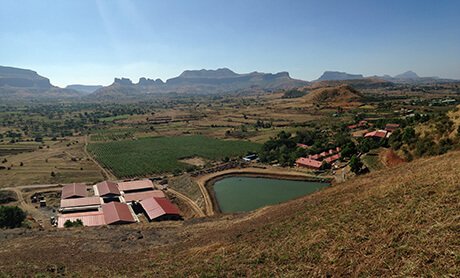To achieve and maintain positive health, material and spiritual life should be balanced. Yogic lifestyle is a combination of karma, hatha, ashtanga and bhakti yoga. This requires a balanced, disciplined lifestyle consisting of the following components
The latter three is where we expend our energy. They ne ed to be in balance because they interact and depend on each other. E.g. somebody wants to quit smoking, because the intellect knows it is unhealthy. But the emotions still want to smoke and therefore the resulting action is smoking. At some level they wan t to be a different person, but they do not want to do the necessary work. The answer is not to suppress the desire - this just pushes it deeper and locks it in, which only causes further problems such as (at an extreme) cancer.
Instead, understanding and acceptance is the key. Thus yoga is all about using understanding and acceptance to unite and balance karma, bhakti and jnana so that a person can achieve health and balance. In our modern, consumerist society excitement and sense stimulation is usually the main aim of any action. The aim of yogic action is to balance these three energies, which leads to contentment rather than excitement.
A way of remembering how to live with balance in the present moment is by remembering AUM - work with complete Accept ance, Understanding and Managing. Acceptance of self (everything like body, emotions, personality, intelligence and other conditionings as well as your individual SWAN) and world (including people, culture, environment etc.) acceptance of past, all events.
Understanding of self, reactions, emotions , desires, limitations & conditionings. Of others and their reactions, emotions, desires, limitations & conditionings. Of society, the world around, rules of nature, rules of society. Understanding situations from others’ point of view. Be friends with you r mind, emotions and reactions, connect with others by understanding them, understand the situation in a detached manner or as a neutral observer, and do not put responsibility on any particular aspect.
Managing emotions, thoughts and actions by doing wit hout any attachment to the fruit of action whether from self, from others or from destiny/luck/God. The aim is to merge the self with the karma as a Dharma. The most important way to achieve this is through Seva or community work.
Phone - +91-9822770727
E-mail - yoga@yogapoint.com or yogapoint108@gmail.com

Yoga Vidya Dham, Kaivalya Nagari,
College Road, Nashik - 422005.
Maharashtra, India.
Phone - +91-9822770727 (for courses in ENGLISH)
+91-253-2318090 (For courses, in HINDI or MARATHI)
(Please call during 9.00 AM to 5 PM Indian Time)
E-mail - yoga@yogapoint.co or yogapoint108@gmail.com
Village Talwade, Trimbak, Nasik
Maharashtra,India.
Phone - +91-9822770727
E-mail - yoga@yogapoint.com or yogapoint108@gmail.com